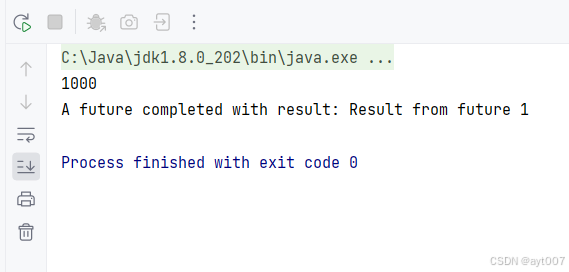《Operating System Concepts》学习第 3 天,p9-p12 总结,总计 4 页。
一、技术总结
1.interrupt
interrupt具有优先级(priority)。
2.storage
指令只能在 memory 上执行,所以要执行程序,那么就要加载到内存上。
(1)RAM
General-purpose computers run most of their programs from rewritable memory, called main memory (also called random-access memory, or RAM). Main memory commonly is implemented in a semiconductor technology called dynamic random-access memory (DRAM)。
main memory也称为 RAM, primary memory, 关于 memory 的术语非常多,每次看到就头疼,需要根据上下文去理解具体指的是什么,这里记一下。
(2)ROM
Instead, for this and some other purposes, the computer uses electrically erasable programmable read-only memory (EEPROM) and other forms of firmware—storage that is infrequently written to and is nonvolatile.
二、英语总结(生词:3)
1.maskable
(1)mask: masque(“a covering for hidding or guarding the face”)
(2)maskable: mask + -able(“capable of being”)
adj. capable of being masked(hidden or blocked),可屏蔽的。
(3) nonmaskable: non- + maskable
示例:Most CPUs have two interrupt request lines. One is the nonmaskable interrupt, which is reserved for events such as unrecoverable memory errors. The second interrupt line is maskable: it can be turned off by the CPU before the execution of critical instruction sequences that must not be interrupted(《Operating System Concepts》第 10 页)。
2.preempt
(1)preemption: pre-(“before”) + emption(*em-, “to take, to buy”)
也写作 pre-emption。c/u. Preemption originally means “a purchase by one before an opportunity is offered to others(有限购买权)”, which later evolved to mean "the act of preventing sth from happening by taking action first(优先采取行动预防某事发生,即先发制人) "
(2)preempt: back-formation of pre-emption.
也写作pre-empt。vt. to prevent sth from happening by taking action first, to take action before others(抢占,先占)。
示例:The interrupt mechanism also implements a system of interrupt priority levels. These levels enable the CPU to defer the handling of low-priority interrupts without masking all interrupts and makes it possible for a high-priority interrupt to preempt the execution of a low-priority interrupt(《Operating System Concepts》第 11 页)。
3.volatile
(1)volatile: volare(“to fly”)
adj. fly away or disappeare quickly. likely to change suddenly and unexpectedly, especially by getting worse(不稳定的)。否定形式是 nonvolatile。
示例:Since RAM is volatile—it loses its content when power is turned off or otherwise lost—we cannot trust it to hold the bootstrap program(《Operating System Concepts》第 11 页)。
这里用 volatile 形容 RAM,是想表示当电脑断电的时候,RAM上的数据会丢失。
关于英语的注解同步更新汇总到 https://github.com/codists/English-In-CS-Books 仓库。
三、其它
1.英语句子中的省略
在技术书籍中,偶尔会遇到为了简洁性省略句子结构(如:宾语(object))的情况,此时要搞懂被省略的内容是什么,才能更好的理解整个句子。
示例:We need an efficient way to dispatch to the proper interrupt handler for a device(《Operating System Concepts》第 9 页)。
在这句话中,dispatch 是及物动词 ,但是后面却没有宾语(object),被省略的词是 interrupts,实际应该是We need an efficient way to dispatch interrupts to the proper interrupt handler for a device。
2.名词(noun) vs 动名词(gerund)
在阅读过程中,经常会遇到有时候使用的时候单词的名词形式,但是有时候表示的名词意思,但是用的动名词(gerund)形式。
示例:A common way to solve this problem is to use interrupt chaining, in which each element in the interrupt vector points to the head of a list of interrupt handlers(《Operating System Concepts》第 10 页)。
在这里,chain 本身也可以做名词,c. a series of things of the same type. 但这里使用的是动名词形式 chaning, chaning 强调了这是一个 process 或者一种 machenism——interrupt chaning refers to the method of linking multiple interrupt handlers, and emphasizes how interrupts are handled dynamically.
四、参考资料
1. 编程
(1) Abraham Silberschatz,Peter Baer Galvin,Greg Gagne《Operating System Concepts》:https://book.douban.com/subject/30272539/
2. 英语
(1) Etymology Dictionary:https://www.etymonline.com
(2) Cambridge Dictionary:https://dictionary.cambridge.org
欢迎搜索及关注:编程人(a_codists)
![[学习笔记] Kotlin Compose-Multiplatform](https://img-home.csdnimg.cn/images/20230724024159.png?origin_url=compose.assets%2Ftooltips.gif&pos_id=img-JR8Vi11g-1738845957167)


















